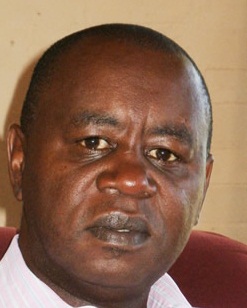
By Vince Musewe
Developmental State is a term coined by Chalmers Johnson that is used to describe States which follow a particular model of economic planning and management.
It was initially used to describe post-1945 Japan and its rapid modernisation and growth. A simple definition would be: “A developmental State is a State where the government is intimately involved in the macro and micro economic planning in order to grow the economy”, with the addition “while attempting to deploy its resources in developing better lives for the people”.
What are the characteristics of a developmental State?
The UN lists the characteristics of developmental States as the following:
- A government with the political will and legitimate mandate to perform the required functions;
- A competent and neutral bureaucracy that ensures implementation. This requires a strong education system and efficient set of public sector organisations with little corruption;
- An institutionalised process where the bureaucrats and government engage with other stakeholders; and
- An established development framework and a comprehensive governance system to ensure the programme is implemented for example, a central function responsible for overall co-ordination.
China, Singapore, India, Thailand, Taiwan, Vietnam, Malaysia, South Korea, Philippines, and Indonesia are all categorised as developmental States.
Accordingly, it is agreed that the developmental State not only refers to the collective economic and human development, but also describes the State’s essential role in harnessing national resources and directing incentives through a distinctive policymaking process. The State’s role is to partner the private sector in the national industrial transformation. The State is a catalytic agency and stakeholders respond to the incentives and disincentives the State establishes.
Clearly, this means that government must lead the developmental agenda creating institutions which effectively implement projects in an inclusive manner.
- Chamisa under fire over US$120K donation
- Mavhunga puts DeMbare into Chibuku quarterfinals
- Pension funds bet on Cabora Bassa oilfields
- Councils defy govt fire tender directive
Keep Reading
In my opinion, the NDS1 is an appropriate policy package for the emergence of a developmental State in Zimbabwe. The question which must be asked is: Do we have the appropriate institutional framework to create a developmental State?
In my view, the whole idea of State enterprises is for the State to play its meaningful role in the economy particularly on developmental issues.
Zimbabwe has 107 State-owned enterprises and parastatals (Seps) which contribute a mere 12% to GDP from a peak of 40% in the 1990s. Seps can be classified into strategic public enterprises, non-strategic viable or potentially viable commercial or industrial public enterprises, non-viable public enterprises with no strategic or social function and public enterprises with a social or developmental role.
The difference between a “parastatal” and a “State-owned enterprise” is that a parastatal is established by an Act of Parliament to carry out a socioeconomic mandate for the benefit of the public, while a State-owned enterprise is an entity in which the government has an equity stake and is registered in terms of Companies Act and should operate like a private company.
Unfortunately, poor management, weak corporate governance, corruption, patronage, cronyism, abuse of public resources, increasing losses which require continued Treasury support and unpaid tax liabilities, have been the common characteristics of Seps in Zimbabwe and this has resulted in their failure to deliver intended services, requiring them to be restructured or reformed.
Seps are a universal phenomenon, they are not unique to Zimbabwe. They are among some of the largest corporations in developed economies. Seps in developed economies emerged in the 1930s, especially after World War II. That was when governments felt the need to intervene in economies in order to facilitate economic development, create employment and address capital shortfalls where the private business sector was either unable or unwilling to participate. In some instances, and especially in developing countries, the motive of new post-colonial governments has been to consolidate and centralise political and/or economic power under the State by owning and controlling Seps in sectors considered strategic and key to economic control.
Seps are viewed as “essential tools of control, economic planning and development.” They are a means of industrial power and influence, economic self-reliance, implementation of policy, safeguarding public interests, maintenance and enhancement of national interest.
Unlocking the potential of Seps can, indeed, expedite the developmental agenda. However, reforming or restructuring Seps is critical so that they are fit for the purpose. The “privatisation” of Seps is another matter. Some feel that privatisation of Seps negates the role of a developmental State which should be at the centre of economic development.
There is no doubt that the State will always have an important role to ensure inclusive economic development which alleviates poverty, creates jobs, facilitates access to affordable basic needs for many, and remove barriers to economic well-being of citizens. Whether the privatisation of Seps can contribute to these goals is questionable given the experiences to date.
Those Seps with a developmental mandate certainly need to be strengthened to deliver. The debate is, therefore, not the “what” but the “how”. Developmental integrity must start with political leadership which can then build the necessary institutional architecture to deliver impactful and inclusive developmental policies.
The NDS1 is a good place to start as it is a comprehensive document of what needs to be done in each sector. The State’s role is clearly to lead and facilitate inclusive development. Monitoring and evaluation of progress will be a key determinant of final outcomes. I, therefore, posit that Zimbabwe will require fundamental and radical transformation where we rebuild new inclusive, effective and accountable institutions which are fit for purpose.
It is only then that we can create a new growth trajectory with the State playing a key role in a developmental State.
- Vince Musewe is an independent economist, you can contact him at [email protected]











